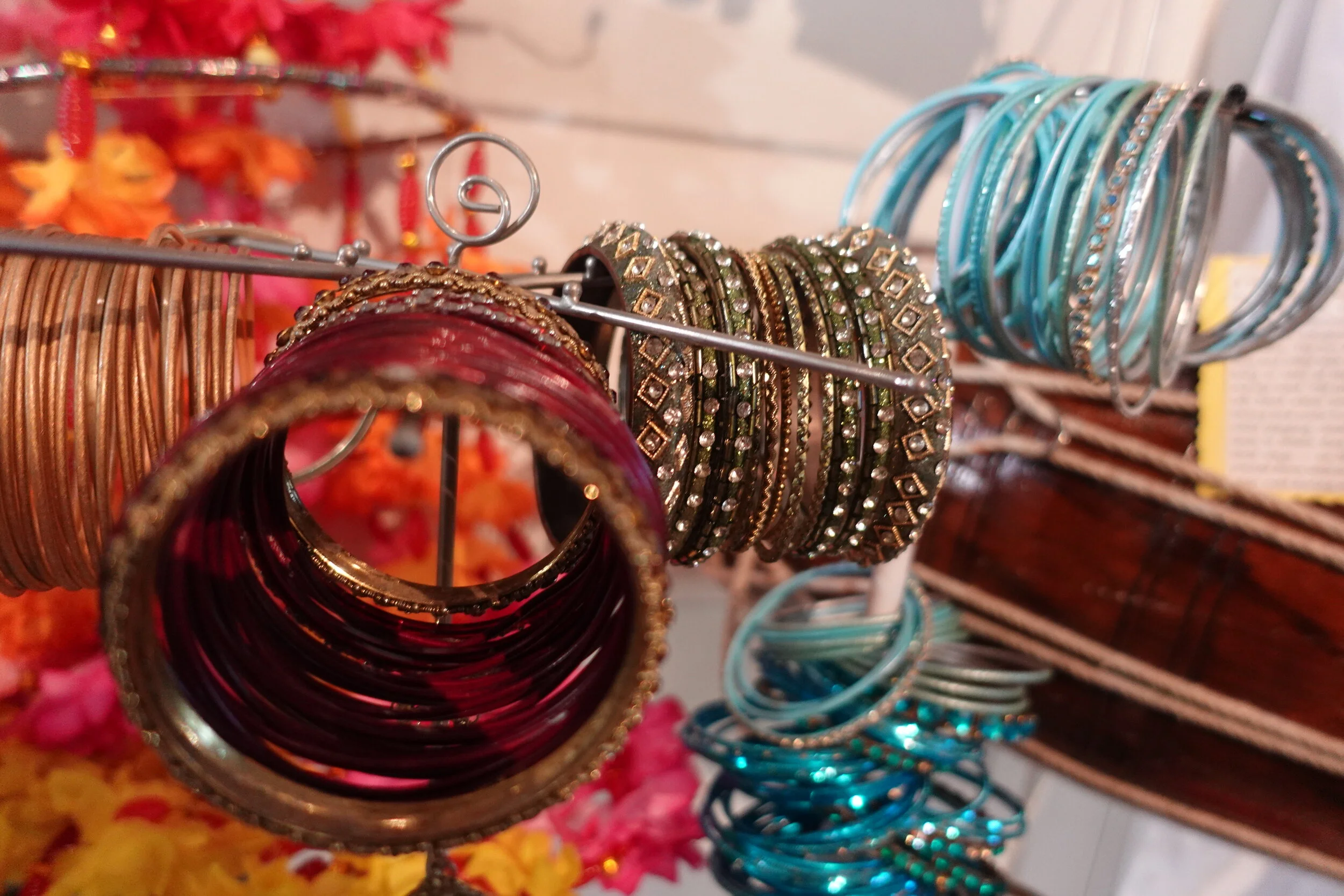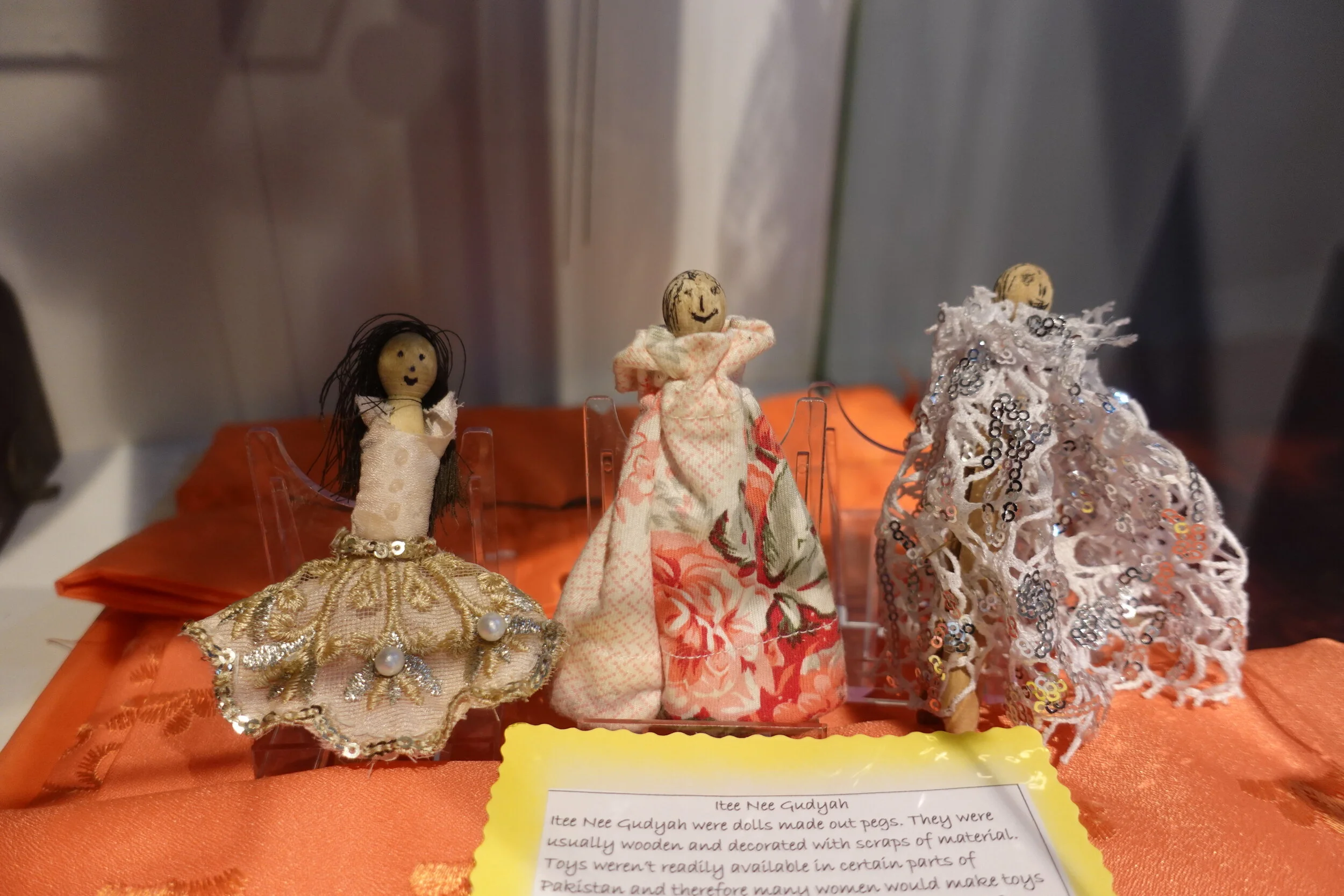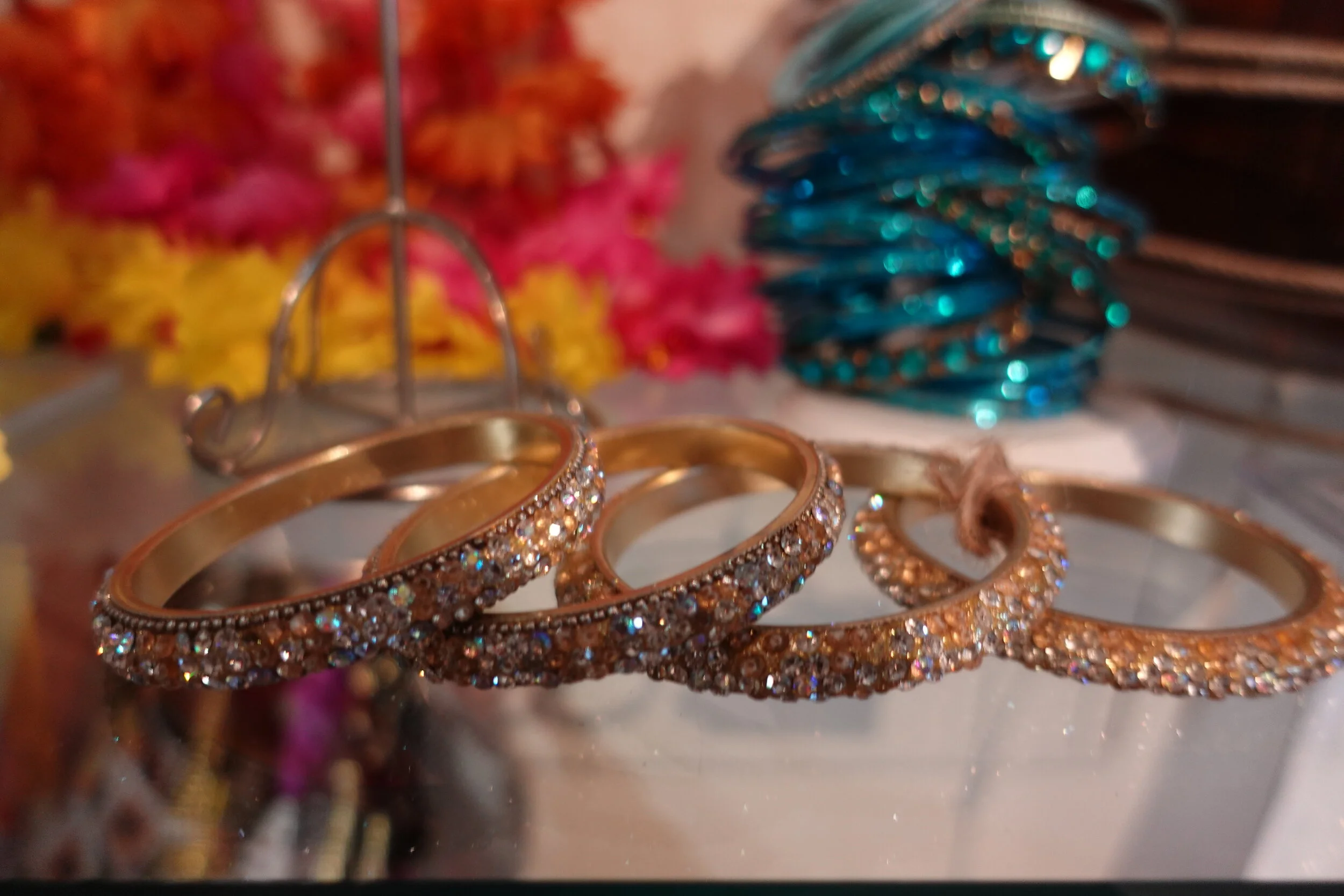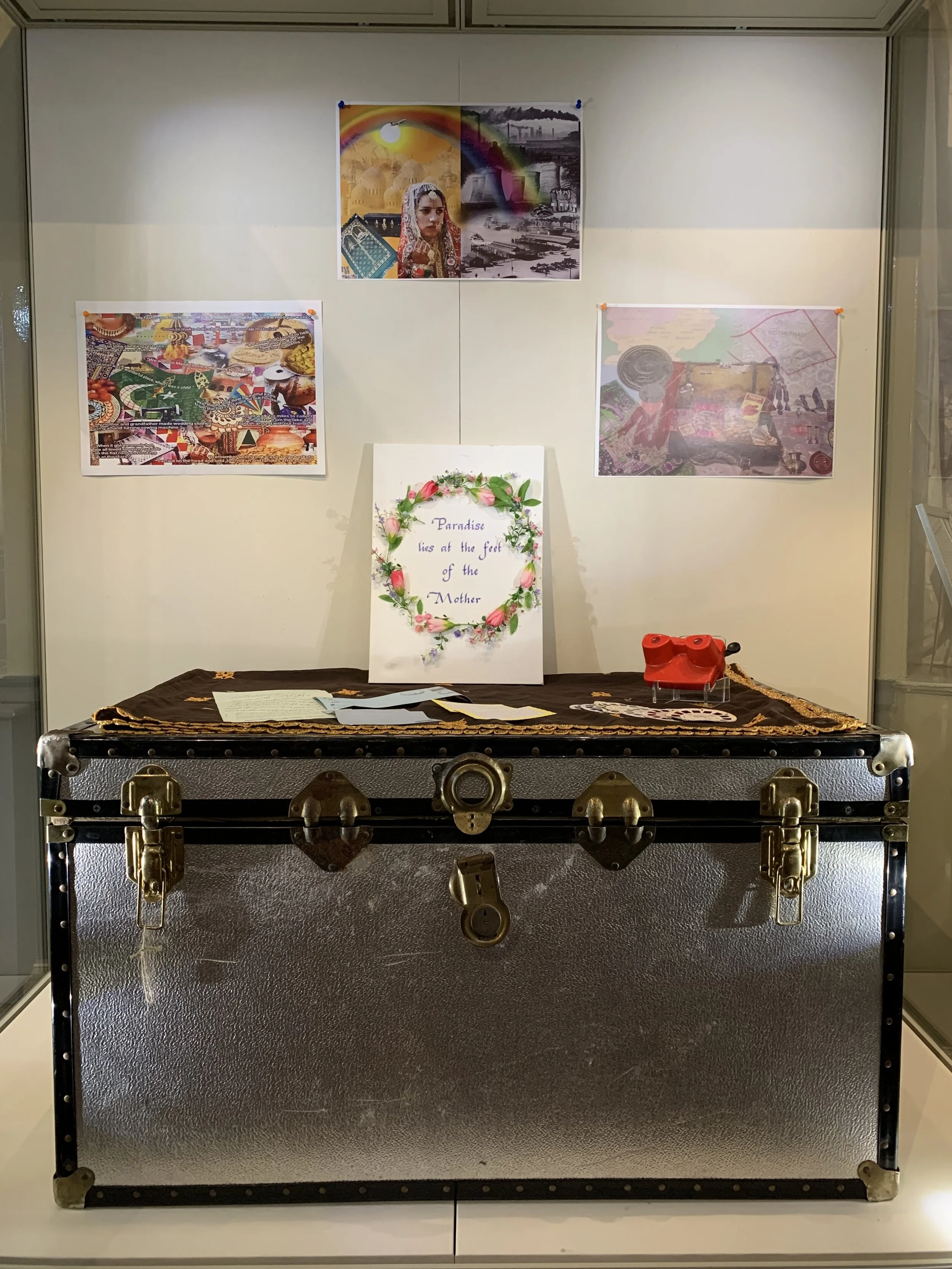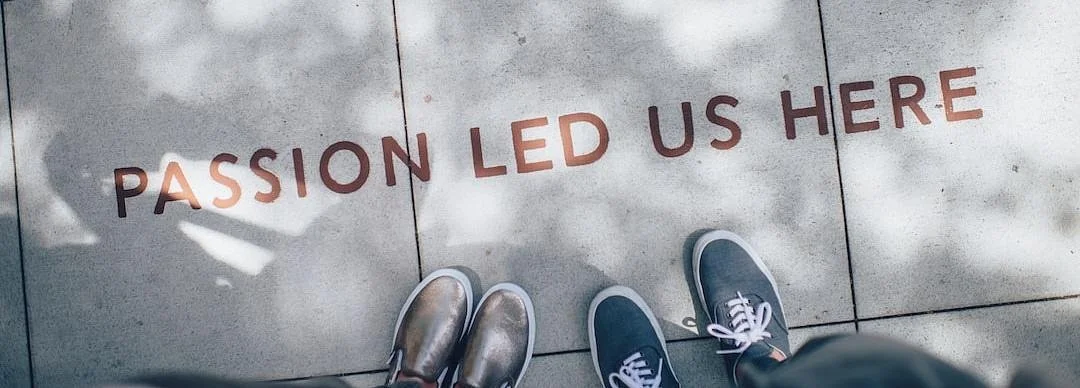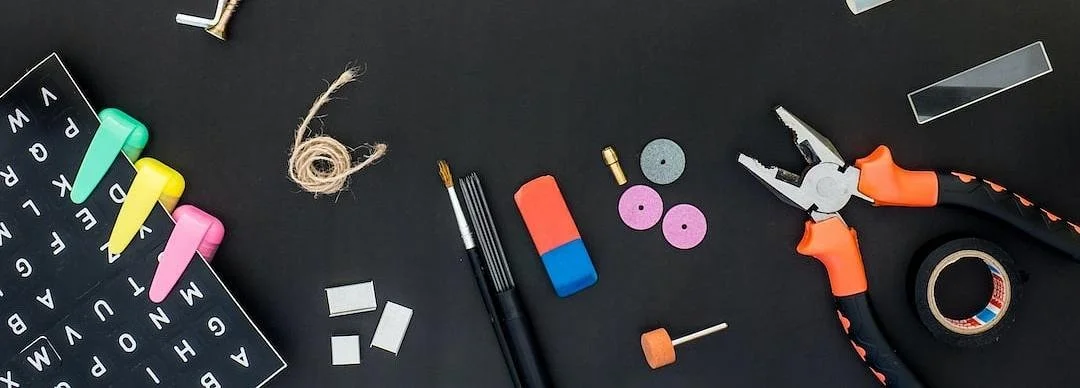Suitcases Tell Our Stories
By
Zanib Rasool
A colour photograph of an exhibition display featuring some colourful bangles. Photo credit: Zanib Rasool.
How do I narrate my beloved mother’s journey from a place of her childhood? Where the sun never stopped shining on her and she remembers those days through objects even when other memories are fading with time.
The loss of home, the uprooting, for my mother meant the loss of identity and the familiar so retaining keepsakes of home in the form of objects and things-maintained connectivity and created memories of the old place.
She talks about things and objects, the peg dolls she made with her friends and last summer she sat in the garden showing her 10-year-old granddaughter how to make these peg dolls. I could see my mother drifting to another place and another time when she was not my mother but a young girl with her own dreams.
Mother, as you talk about those peg doll days you drift back to your childhood days in Kashmir.
I remember making peg dolls with my friends on sunny days under the orange tree. We would shake the tree and the oranges would fall and we would eat loads and were up all night with stomach pains. I brought my favourite peg doll, Yasmin, with me when I left Pakistan in my suitcase just to remind me of the childhood friends I left behind.
Yasmin that also happens to be her great granddaughter’s name.
When I was a young child, my mother told me stories about her friends and how they made peg dolls together and wrapped different bits of scrap fabric around the pegs. I have tried to capture those feelings of loss of an imaginary childhood friend, the peg doll, and the loss of those school friends, some left home like my mother whilst others stayed.
Goodbye to my peg doll days
My peg doll, Yasmin,
All my girlie secrets you kept,
never saying a word to anyone.
So sorry, mum said I could not take you with me.
She said there was no room for my little peg doll in that big old suitcase,
I think mothers can be cruel sometimes.
I cried all the way to the airport,
I wondered what happened to you,
it was unbearable to think that you were discarded on a rubbish heap.
Another little girl may have found you.
She became your special friend,
who told you all her secrets.
This girl did not have to pack her suitcase and go and live miles away.
She stayed,
and you became old together.
I do hope so.
As girls all over the world move into womanhood, they have to part with their dolls whether it is porcelain dolls or peg dolls and leave behind their childhood, it becomes like a rite of passage for teenage girls to give up their dolls to be replaced eventually by children.
My mother brought with her multi-coloured bangles (Churi sets) in her suitcase when she arrived in England in 1961. I loved it when she opened her suitcase and slipped them on my tiny arms, they made this lovely jingling sound as I moved my arms around. There were so many colours to match her outfits, but mother never wore them, she just looked at them and silently sighed as she remembered home.
I remember going to Pakistan aged 5 with my parents to see my grandparents. I remember the heat I did not like it so hot after living near the dockyards of Newcastle. I remember sleeping outside in the courtyard and counting stars until I fell asleep.
I remember vividly my grandmother decorating my hands with henna as it was coming up to the Eid Festival. A bracelet seller visited our village on “Chand Raat” the night of the moon, an evening before the Eid Festival, he carried a large straw basket on his head which contained glass bangles (bracelets) it was like a treasure trove to a child’s eye, infusion of colour. I remember I chose the green ones with a silver zigzag pattern; the colours dazzled and illuminated a rainbow onto the ground. Every time I see a packet of henna powder or glass bracelets, I am back in Pakistan getting ready for the Eid Festival with my amazing grandmother. When I came back to England with my parents, I remember bringing glass bangles, and henna packets in my little suitcase.
The suitcase represents the migrant diaspora, a journey from one place to another, and for the migrant women; the suitcase carried visual reminders of a home through everyday objects like peg dolls and glass bangles. The suitcase was a vessel holding immigrant women’s memories of nostalgia and objects were evocation of the old home as they navigated a new life, in a different place.
Acknowledgement
I would like to thank all the staff at Clifton Park Museum in Rotherham for their support and guidance.
A big thanks also to Rotherham Open Arts Renaissance (ROAR) and Rotherham Ethnic Minority Alliance (REMA) for advice and funding support
Zanib Rasool, MBE.

